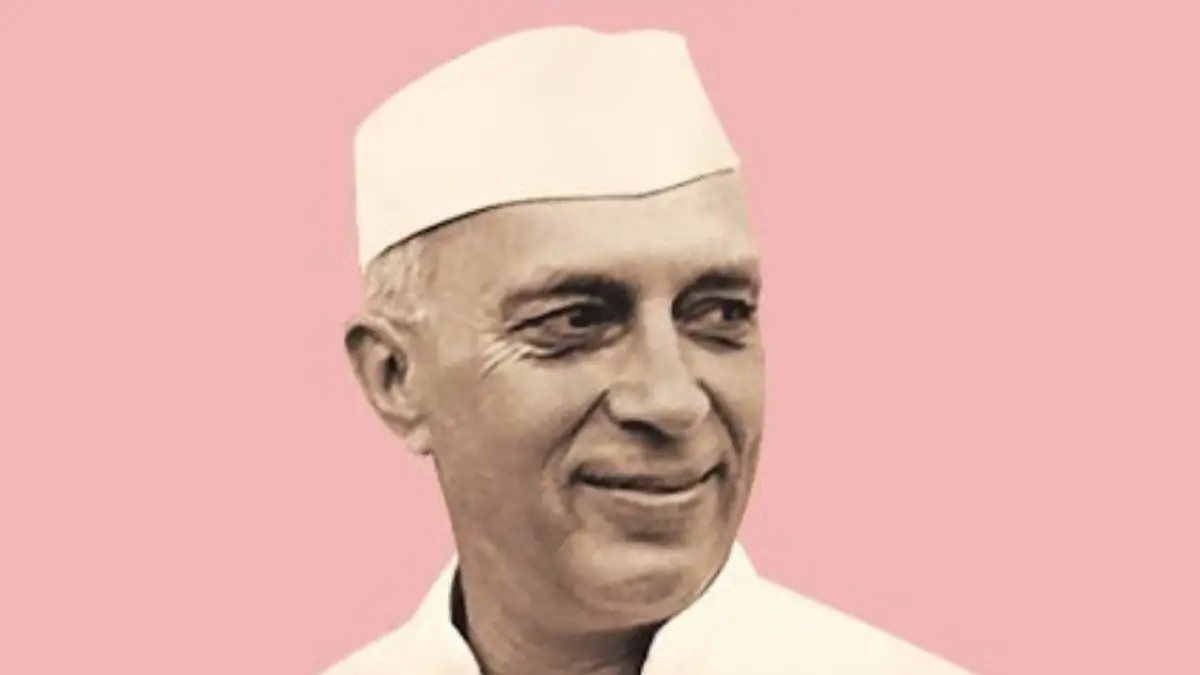Jawaharlal Nehru, popularly called Pandit Nehru, was one of the most important leaders in India’s modern history. As the country’s first Prime Minister, he helped guide India through its early and challenging years after independence. This article looks at his life, family background, political journey, contribution to the freedom movement, leadership as Prime Minister, foreign policy, and the legacy he left behind.
Jawaharlal Nehru – Key Details
- Birth date: 14th November 1889
- Birth place: Allahabad, North- Western Provinces, British India
- Parents: Motilal Nehru, Swarup Rani Nehru
- Death: 27th May, 1964 at New Delhi, India
Jawaharlal Nehru – Early Life, Family and Education
Jawaharlal Nehru was born on 14th November 1889 into a Kashmiri Brahman family to Motilal Nehru, prominent lawyer and leader in the Indian independence movement and Swarup Rani Nehru. Raised in a politically active environment, Nehru completed his early education under private tutors before venturing to England for further studies. He attended Harrow School, Trinity College, Cambridge and the Inns of Court School of Law, London, eventually becoming a barrister.
Jawaharlal Nehru – Political Journey
Nehru’s political journey began with his involvement in the Indian National Congress. He attended the Bankipore Congress in 1912 and became the Secretary of the Home Rule League in Allahabad in 1919. Inspired by Mahatma Gandhi, he actively participated in the Non-Cooperation Movement (1920-22) and faced imprisonment twice. Nehru’s commitment to India’s independence led him to various international forums, including the Congress of oppressed Nationalities in Brussels and the tenth-anniversary celebrations of the October Socialist Revolution in Moscow.
His leadership role grew and in 1928, he founded the ‘Independence for India League’ and became its General Secretary. Elected as the President of the Lahore Session of the Indian National Congress in 1929, Nehru played a crucial role in adopting the complete goal for India’s independence.
During 1930-35, he faced imprisonment multiple times due to his involvement in movements like Salt Satyagraha. Nehru’s political journey culminated in him becoming the first Prime Minister of independent India, where he hoisted the national flag and delivered his iconic speech, “Tryst with Destiny,” from the Red Fort.
Jawaharlal Nehru – Major Works as Prime Minister
As Prime Minister, Nehru left an indelible mark on the socio-economic and political landscape of India. He championed modern values, secularism and democratic socialism. Nehru focused on the country’s unity, initiated the first five-year plans in 1951 and advocated for India’s industrialization. His administration also promoted scientific and technological advancements, leading to the establishment of prestigious institutions like the Indian Institute of Technology and the All India Institute of Medical Sciences.
Nehru’s commitment to social reform was an evident in his support for free public education, providing free meals for children and enacting laws to empower women, including the right to inherit property and divorce. His legacy includes significant contributions to India’s education system and the initiation of India’s first Space Program.
Foreign Policy and Non-Alignment
Nehru’s foreign policy emphasized non-alignment, maintaining India’s independence from major power blocs. This policy, rooted in his commitment to peace, economic development and sovereignty, led to the formation of the Non-Aligned Movement in 1955, promoting cooperation among newly independent nations.
Jawaharlal Nehru – Death and Legacy
Jawaharlal Nehru’s legacy is marked by his belief in pluralism, socialism, liberalism and democracy. His deep love for children led to the celebration of his birthday as Children’s Day in India. Nehru’s vision and leadership paved the way for India’s progress in various fields and he is remembered for laying the foundation for the country’s modernization.
Why is Jawaharlal Nehru Known as ”Chacha Nehru”?
Jawaharlal Nehru is known as Chacha Nehru because of his deep love and affection for children. He believed that children were the future of India and deserved care, education, and encouragement. The word “Chacha” means uncle in Hindi, and children used it out of respect and warmth. Nehru often spent time with children, spoke about their bright future, and encouraged their growth. His kindness and belief in their potential made him lovingly known as Chacha Nehru across the country.
Awards Presented to Jawaharlal Nehru
Jawaharlal Nehru, the first Prime Minister of India, received several prestigious awards, these are:
- Bharat Ratna in 1955
- Lenin Peace Prize in 1955
- Order of the Yugolsav Star in 1954
- An award was also named after him, Jawaharlal Nehru Award for International Understanding, established in 1965.
Institutions Named After Jawaharlal Nehru
Several colleges and institutions named after him. Some of these are:
- Jawaharlal Nehru University
- Jawaharlal Nehru Technological University
- Jawaharlal Nehru Medical College
- Jawaharlal Nehru Centre for Advanced Scientific Research
- Jawaharlal Nehru Architecture and Fine Arts University
- Jawaharlal Nehru College of Engineering
Find More Miscellaneous News Here




 Important Days in March 2026: Check the ...
Important Days in March 2026: Check the ...
 Which Country is the Largest Honey Produ...
Which Country is the Largest Honey Produ...
 Which Country is the Largest Producer of...
Which Country is the Largest Producer of...








